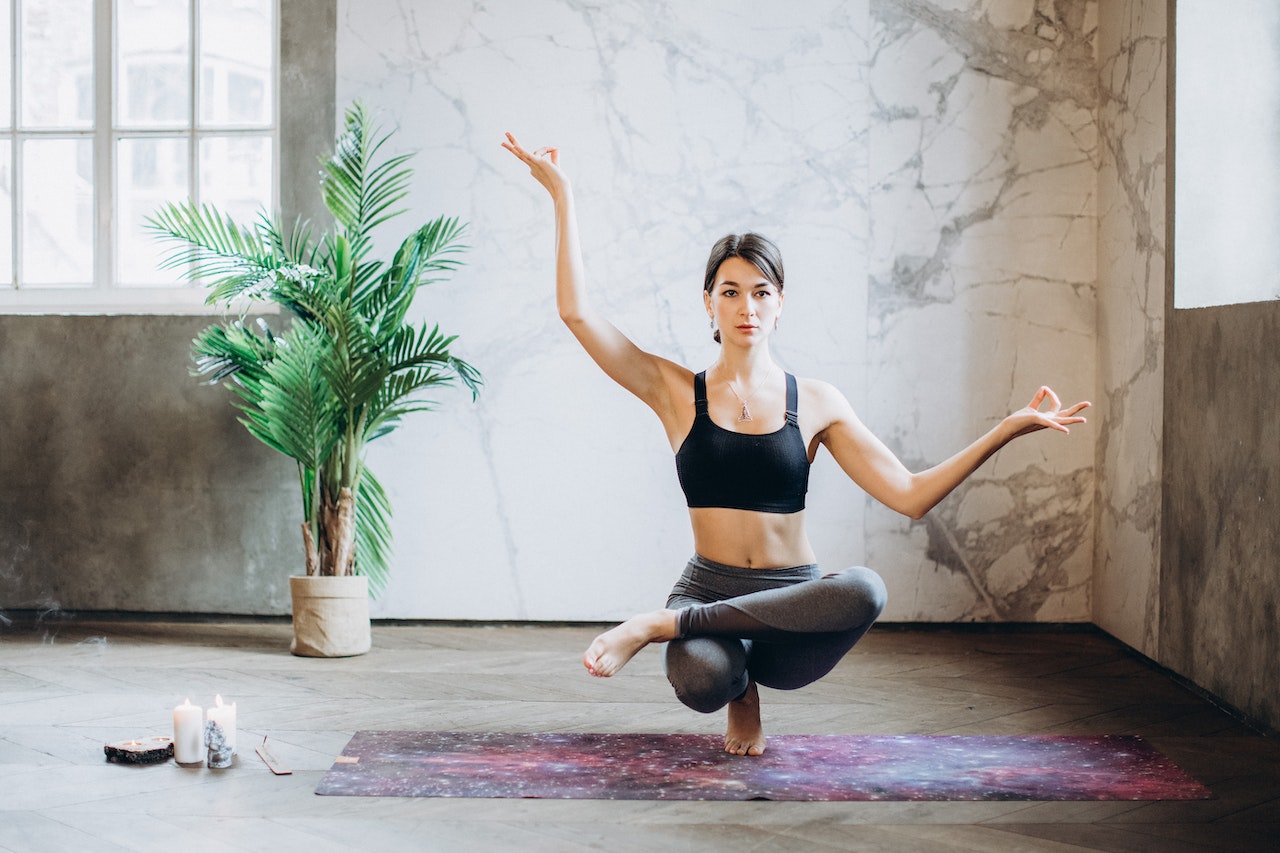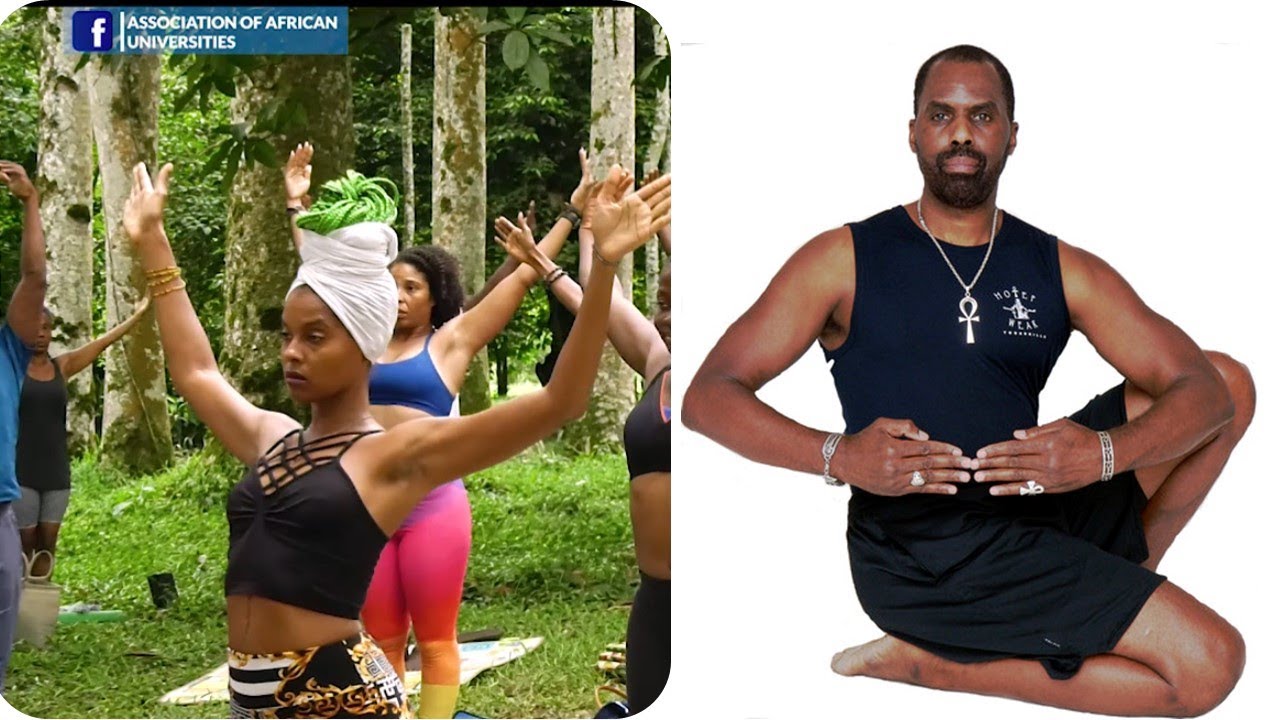The Benefits Of Yoga For Stress Management And Stress Relief
Yoga has been practiced for thousands of years and is known for its numerous health benefits, including reducing stress and anxiety. In today's fast-paced world, where stress has become a common problem, practicing yoga has become a popular way to manage stress. In this article, we will discuss the benefits of yoga for stress management and how it can help individuals improve their mental and physical well-being.
Author:Suleman ShahReviewer:Han JuMar 22, 20237.2K Shares279.7K Views

Yoga has been practiced for thousands of years and is known for its numerous healthbenefits, including reducing stress and anxiety.
In today's fast-paced world, where stress has become a common problem, practicing yoga has become a popular way to manage stress.
In this article, we will discuss the benefits of yoga for stress managementand how it can help individuals improve their mental and physical well-being.
What Type Of Yoga Is Best For Stress Relief
Stress is an inevitable part of life, and it can take a toll on our physical and mental well-being. That's why finding ways to manage stress is essential for leading a healthy, balanced life.
One of the best ways to manage stress is through yoga. However, with so many different types of yoga, it can be challenging to know which type is best for stress relief.
In this article, we'll explore some of the most effective types of yoga for stress relief and how they can benefit your overall well-being.
Hatha Yoga
Hatha yoga is a gentle, slow-paced form of yoga that is great for stress relief. It focuses on breathing techniques and simple poses that help to calm the mind and body.
Hatha yoga is particularly effective for beginners who are new to yoga or anyone looking for less intense practice. It's also an excellent choice for people who have physical limitations or injuries.
Restorative Yoga
Restorative yoga is a passive form of yoga that involves holding poses for an extended period.
It's designed to help the body relax and release tension, making it an excellent choice for stress relief.
Restorative yoga typically involves the use of props like blankets, blocks, and bolsters to support the body in various poses. This form of yoga can also help to improve flexibility and reduce chronic pain.
Yin Yoga
Yin yoga is a slow-paced, meditative form of yoga that targets the connective tissues in the body. It involves holding poses for an extended period, typically between 3-5 minutes.
Yin yoga is great for stress relief because it promotes relaxation and helps to release tension in the body. It's also an excellent choice for people who spend a lot of time sitting or standing and need to stretch their muscles.
Vinyasa Yoga
Vinyasa yoga is a more dynamic form of yoga that involves flowing through sequences of poses, typically with the breath.
This type of yoga can be more challenging, but it's an excellent choice for stress relief because it helps to promote mental focus and clarity. Vinyasa yoga also helps to build strength and flexibility, which can boost overall well-being.
Kundalini Yoga
Kundalini yoga is a form of yoga that combines physical postures, breathing exercises, and meditation to promote spiritual and physical well-being.
It's an excellent choice for stress relief because it helps to balance the nervous system and promote relaxation. Kundalini yoga also helps to improve mental clarity and boost energy levels.
Yoga And Stress Research
Yoga has been practiced for thousands of years and has gained popularity in recent years as a tool for stress relief.
Numerous studies have shown that practicing yoga can help to reduce stress and promote overall well-being. In this article, we'll explore some of the most compelling research on yoga and stress.
One study published in the Journal of Psychiatric Practice found that a regular yoga practice can help to reduce the symptoms of anxiety and depression.
The study followed 30 adults with diagnosed anxiety disorderswho practiced yoga twice a week for eight weeks. The results showed a significant reduction in anxiety and depression symptoms, as well as the improved overall quality of life.
Another study published in the Journal of Alternative and Complementary Medicine found that practicing yoga can help to lower cortisol levels in the body.
Cortisol is a hormone that is released during times of stress, and chronically high cortisol levels can have negative effects on the body.
The study followed 68 women who practiced yoga regularly and found that they had significantly lower cortisol levels than the control group.
A review of 35 studies published in the Journal of Clinical Psychology found that practicing yoga can help to improve sleep quality.
The review showed that yoga can help to reduce the time it takes to fall asleep, increase total sleep time, and improve sleep efficiency. Better sleep quality can lead to improved overall well-being and better stress management.
How Does Yoga Reduce Stress And Anxiety?
Stress and anxiety are common experiences that can have negative effects on our physical and mental well-being.
Yoga is a popular tool for stress relief, and numerous studies have shown that it can help to reduce the symptoms of stress and anxiety. In this article, we'll explore how yoga works to reduce stress and anxiety.
Reducing Cortisol Levels
Yoga has been shown to help reduce cortisol levels in the body. Cortisol is a hormone that is released during times of stress, and chronically high cortisol levels can have negative effects on the body.
Yoga helps to reduce cortisol levels by activating the parasympathetic nervous system, which is responsible for the body's "rest and digest" response.
Promoting Relaxation
Yoga is a practice that emphasizes relaxation and mindfulness. It involves focusing on the present moment and letting go of distractions and worries. This can help to promote a sense of calm and reduce feelings of stress and anxiety.
Improving Breathing
Yoga involves various breathing techniques, such as deep breathing and ujjayi breathing, which can help to reduce stress and anxiety.
Deep breathing helps to activate the parasympathetic nervous system and reduce cortisol levels, while ujjayi breathing helps to regulate the breath and calm the mind.
Enhancing Physical Fitness
Yoga is also a physical practice that can help to improve fitness and reduce stress. Physical activity has been shown to have a positive effect on mental health, and yoga combines movement and mindfulness to provide a holistic approach to stress management.

HealthAfrik: The Benefits of Yoga for Stress Management
Increasing Mindfulness
Mindfulness is the practice of being present and aware in the moment. Yoga emphasizes mindfulness by encouraging practitioners to focus on their breath and body during the practice.
This can help to reduce feelings of stress and anxiety by promoting a sense of calm and relaxation.
Morning Yoga For Stress Relief
Starting your day with a morning yoga routine can be a great way to relieve stress and set a positive tone for the rest of your day. In this article, we'll explore some of the best morning yoga poses for stress relief.
Child's Pose
Child's pose is a gentle yoga pose that can help to calm the mind and release tension in the back and hips. Begin by kneeling on the floor with your big toes touching and your knees hip-width apart.
Sit back on your heels and stretch your arms out in front of you, resting your forehead on the floor. Take a few deep breaths and let your body relax.
Cat-Cow Stretch
The cat-cow stretch is a gentle yoga sequence that can help to relieve tension in the back and neck. Begin on your hands and knees with your wrists directly under your shoulders and your knees directly under your hips.
Inhale and arch your back, lifting your head and tailbone towards the ceiling. Exhale and round your spine, tucking your chin towards your chest.
Downward-Facing Dog
Downward-facing dog is a classic yoga pose that can help to stretch and strengthen the entire body. Begin on your hands and knees with your wrists directly under your shoulders and your knees directly under your hips.
Lift your hips up and back, straightening your arms and legs and forming an inverted V-shape with your body. Take a few deep breaths and let your body relax into the pose.
People Also Ask
What Are The Benefits Of Yoga For Stress Management?
Yoga can help to reduce cortisol levels, promote relaxation, improve breathing, enhance physical fitness, and increase mindfulness, making it a powerful tool for stress relief.
Can Morning Yoga Help With Stress Relief?
Yes, starting your day with a morning yoga routine can be a great way to relieve stress and set a positive tone for the rest of your day.
Can Yoga Control Overthinking?
Yes, Overthinking can be controlled with yoga mudras
Conclusion
In conclusion, practicing yoga is a highly effective way to manage stress and improve overall well-being. It provides a holistic approach that addresses both the physical and mental aspects of stress.
With its ability to reduce cortisol levels, promote relaxation, and increase mental clarity, yoga is an excellent tool for anyone looking to manage stress and improve their quality of life.

Suleman Shah
Author
Suleman Shah is a researcher and freelance writer. As a researcher, he has worked with MNS University of Agriculture, Multan (Pakistan) and Texas A & M University (USA). He regularly writes science articles and blogs for science news website immersse.com and open access publishers OA Publishing London and Scientific Times. He loves to keep himself updated on scientific developments and convert these developments into everyday language to update the readers about the developments in the scientific era. His primary research focus is Plant sciences, and he contributed to this field by publishing his research in scientific journals and presenting his work at many Conferences.
Shah graduated from the University of Agriculture Faisalabad (Pakistan) and started his professional carrier with Jaffer Agro Services and later with the Agriculture Department of the Government of Pakistan. His research interest compelled and attracted him to proceed with his carrier in Plant sciences research. So, he started his Ph.D. in Soil Science at MNS University of Agriculture Multan (Pakistan). Later, he started working as a visiting scholar with Texas A&M University (USA).
Shah’s experience with big Open Excess publishers like Springers, Frontiers, MDPI, etc., testified to his belief in Open Access as a barrier-removing mechanism between researchers and the readers of their research. Shah believes that Open Access is revolutionizing the publication process and benefitting research in all fields.

Han Ju
Reviewer
Hello! I'm Han Ju, the heart behind World Wide Journals. My life is a unique tapestry woven from the threads of news, spirituality, and science, enriched by melodies from my guitar. Raised amidst tales of the ancient and the arcane, I developed a keen eye for the stories that truly matter. Through my work, I seek to bridge the seen with the unseen, marrying the rigor of science with the depth of spirituality.
Each article at World Wide Journals is a piece of this ongoing quest, blending analysis with personal reflection. Whether exploring quantum frontiers or strumming chords under the stars, my aim is to inspire and provoke thought, inviting you into a world where every discovery is a note in the grand symphony of existence.
Welcome aboard this journey of insight and exploration, where curiosity leads and music guides.
Latest Articles
Popular Articles
